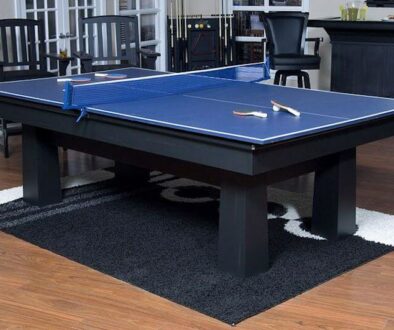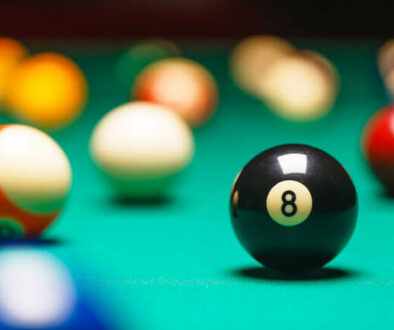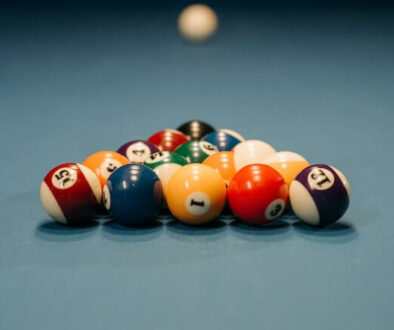How to Pick Your Perfect Pool Cue Case
A pool cue can be a fragile thing, especially if it’s made of wood.
Protecting your pool cues will help you maintain consistency while playing and save you money in the long run.
There are countless options for quality pool cue cases out there. Choosing one that will serve you well is much simpler if you know what your requirements are ahead of time.
In this article, we will help make things easier by sharing the key things you’ll need to consider before buying the best case for your pool cue.
Cue Case Considerations
Cue cases vary in everything from size and material to their visual appearance. The right case for you will depend on your preferences for the factors mentioned below.
Here are some key factors to consider when choosing a cue case:
1. Budget
Cue cases come in various price ranges. You should always start by deciding how much you are comfortable spending on a case. Cue case prices will typically reflect the case’s quality.
You can get a cue case anywhere from around $20 to over $500. Cue cases retailing for under $50 are typically made from inexpensive materials like vinyl or fake leather.
The high-end or premium cue cases will retail for $300 or more, and often have a genuine leather shell and heavy-duty components.
2. Materials
The cue case material is important as it often determines the case’s lifespan. Most cases are made from vinyl, leatherette, or genuine leather.
- Vinyl cue cases are most common, as they are more affordable. The material is also easy to clean. But vinyl is prone to cracks and simply doesn’t look as good.
- Leatherette is artificial leather, and it is cheaper than genuine leather. This material is not prone to fading like real leather when exposed to the sun for long periods. But it is less durable than genuine leather and does not have the same soft feel.
- Genuine leather is one of the toughest pool case materials. It also has a premium, high-end look, but is much more expensive.
3. Case size & configuration
You will have plenty of case configurations to choose from, and the right one for you depends on your specific situation.
At the very least, you should choose a cue case that can fit a standard pool cue. Standard cues are typically between 56 and 58 inches long. The case should have space for the butt and shaft (each is typically around 29 inches).
Also, consider the number of cues you have. Common cue case configurations are available in different options, like 1×1 (fits 1 pool cue – 1 butt/1 shaft), or even up to 4×8 (fits 4 pool cues – 4 butts/8 shafts). Sometimes even more.
A 1×1 case is often enough for beginners and anyone who plays pool as a hobby or for fun. Professionals and other serious players often need a larger case that can hold a few extra butts and shafts. Having multiple high-performance shafts can help certain players improve their game.
4. Protection
A good pool cue case should protect your cues and other accessories adequately. The protection level depends on the overall construction of the case.
Cases with individual tubes for each cue component (butt and shaft) and soft-padded interiors offer the highest protection level. Hard cue cases are also more protective than soft ones.
Soft cases:
Soft cases are perfect when you want something for short-term cue storage. They are typically softer and more flexible and are made from nylon, vinyl, or leatherette.
Although they do not have individual tubes like hard cases, they have soft sleeves for keeping the shafts and butts in separate compartments.
Soft cases are the cheapest. While they provide effective protection from moisture, the soft material will not prevent cues from warping or bending.
Hard cases:
Hard cases are the best when you want long-term storage and maximum protection for your pool cues. They can be made from genuine leather, or cheaper vinyl and leatherette shells.
These cases have individual tubes to keep the butts and shafts separate. The tubes also protect cue sticks from moisture.
A hard case is better for people who travel often. The case will give your cue sticks maximum protection from bending and scratching. Hard cases are more expensive and can be a little heavier.
5. Convenience
Your pool cue case should also be convenient to use. Convenience essentially means how easy the case is to carry or haul around.
Quality cue cases feature shoulder straps and carry handles for easier transport. Some cases have both. A padded carry handle on the side or top makes it easy to grab the case, but this is best for short term carrying.
Adjustable shoulder straps are more convenient when carrying the case for long distances. A case that provides a strap and a handle is more versatile, and likely the best option.
6. Storage space
The perfect cue case often includes extra storage space for accessories like chalk, tip shaper, gloves, or shaft conditioners.
A couple of external or internal pockets should provide enough extra storage. Some cases even have extra sleeves that can accommodate jump handles.
7. Visual appeal
Case looks matter to some players, and not much to others. Cue cases come in a variety of colors, detailing, and designs. For instance, some high-end leather cases have sleek, rivet detailing.
A fancy case is a great additional perk if you can afford it. Otherwise, having a case that protects your cues well is most important.
Making the Purchase
Once you know what cue case will work best for you, it is important to determine where to buy. Ensure you only buy your case from a reputable dealer.
Buying from a trusted dealer ensures you get the case you want, not a counterfeit. Reputable dealers will also stand by their products with a good warranty and great customer service.
Buying locally can help lower costs by eliminating shipping charges. When buying locally, it is also easier to return the case or take it back for repairs if needed.
Some well-known and reputable online dealers stock high-quality cue cases. These dealers include Pooldawg, Ozone Billiards, and Seybert’s. Amazon also has a good selection of high-quality cue cases. You should shop around and compare what these online retailers offer before deciding what best suits you.
Wrap Up
A good cue case is as important as finding a good pool cue. It will protect your favorite cues to ensure they keep serving you well for a long time.
The right cue case for you largely depends on your preferences. But, it is important to consider factors like case size, material, protection level, and budget.
Finally, make sure to buy from a reputable dealer. You can buy from a reputable local billiards accessories dealer or one of the well-known online retailers.
As always, Happy Shooting!



